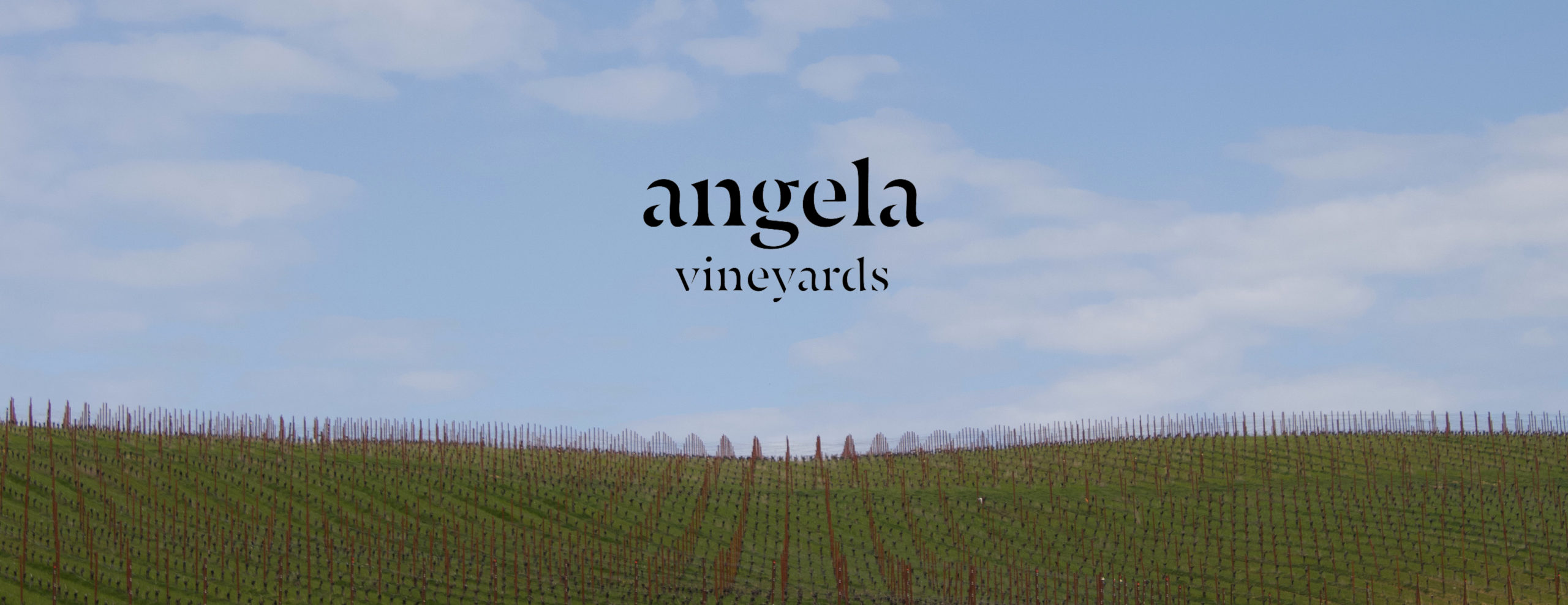
In partnership with Serendipity, Angela Vineyards is available in the Texas market, with inventory coming soon to California.
Words and Photographs by J.R. Ayala
Tucked away in the verdant slopes of the Yamhill-Carlton AVA, Angela Vineyards is producing fresh, exuberant and characterful Pinot Noirs and Chardonnays that speak of place. It’s here that you’ll find Heath Payne, a viticulturist with an unmatched reverence for the vine and an enthusiastic philosophy of farming “as above, so below.” This Organic Harvest Month we look at how sustainability plays out in the vineyards with Heath at the helm. Myself and several visiting teammates toured the vineyards last Spring, discovering the science behind some of their practices. Whether it’s examining microbiomes in dirt or borrowing from biodynamics, we quickly learned that holistic farming demands nuance, requires experimentation, and takes time. Here are the ways in which one passionate viticulturist is taking sustainable grape-growing beyond organics.
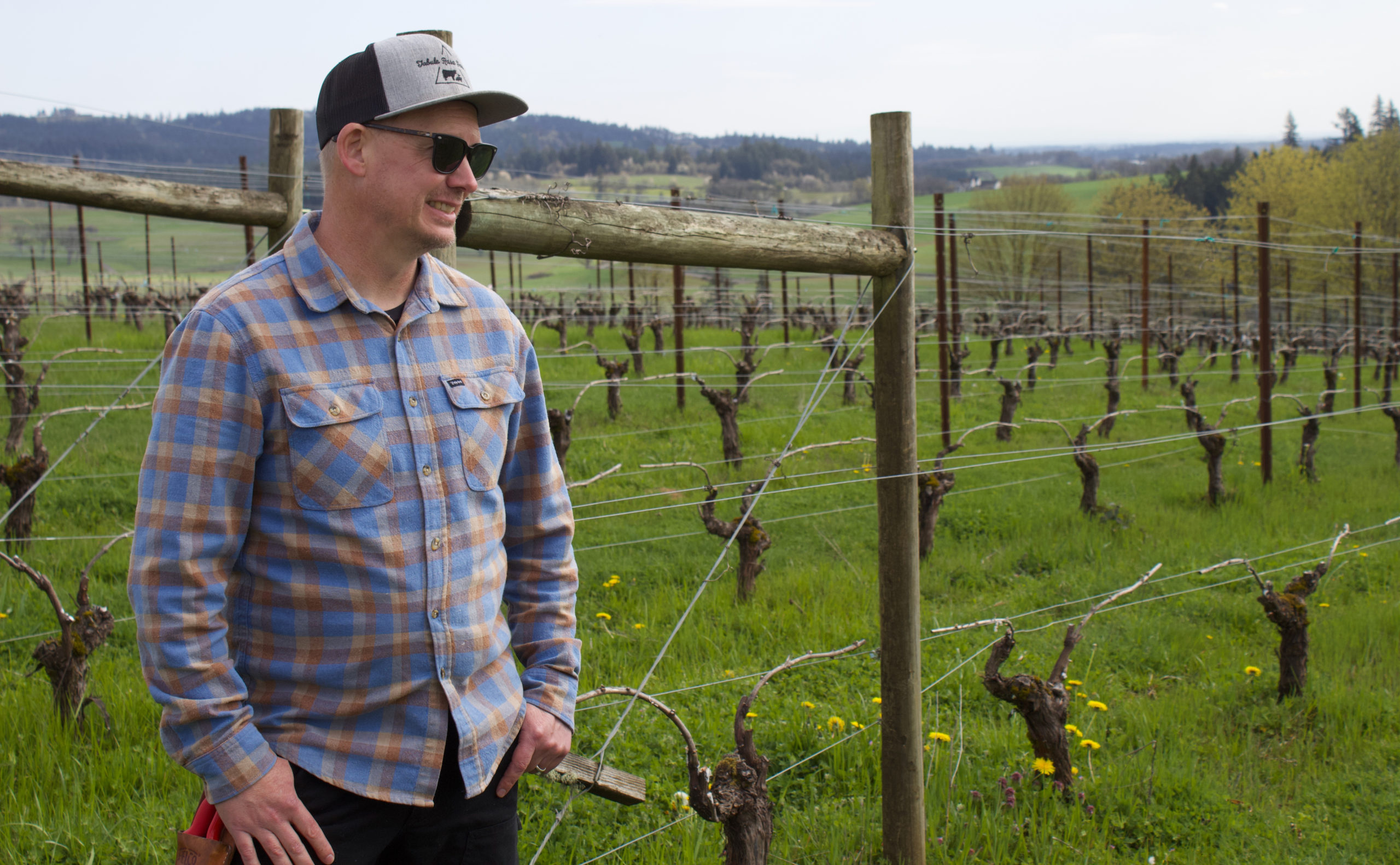
Heath Payne, Viticulturist
An arm of the renowned Graham Beck family, Angela Vineyards is a boutique winery building upon their legacy of heritage vineyards with careful consideration for land ecology.
We’ll explore:
-
Dry Farming to Support Soil Health
-
Using Tressage to Foster “Living Wood”
-
Reducing Tilling via Cover Crops & Walking Compost
-
Utilizing Community Where it Matters
Farming the Soil
The land at Angela Vineyards comprises several plots that were reunited from the original Abbott Claim holding in 1855. The soils, some of which were planted in 2001 and others as recently as 2020, represent a range of vineyard age and microbial life. Out of necessity and adaptation, Heath farms each unique plot of land differently based on its specific needs. He starts with the soil, keeping in mind that what happens unseen and in the dirt is a “tremendous modifier of the atmosphere”.
One such way they treat the soil is by ensuring strong, deep root systems. Angela is located in Oregon’s Savannah Ridge, an area where water is scarce and dry farming is a necessity. When a vine is stressed because water is unavailable, its roots will delve more deeply into the earth. Not only does this provide a plant with greater access to water, but it also allows for a complex, nutrient-uptake process called ‘mineralization’ to occur. What happens in a vineyard’s concealed strata, however, is only one piece of the puzzle when you’re investing in long-term plant health. There’s also the wood of the vine itself.
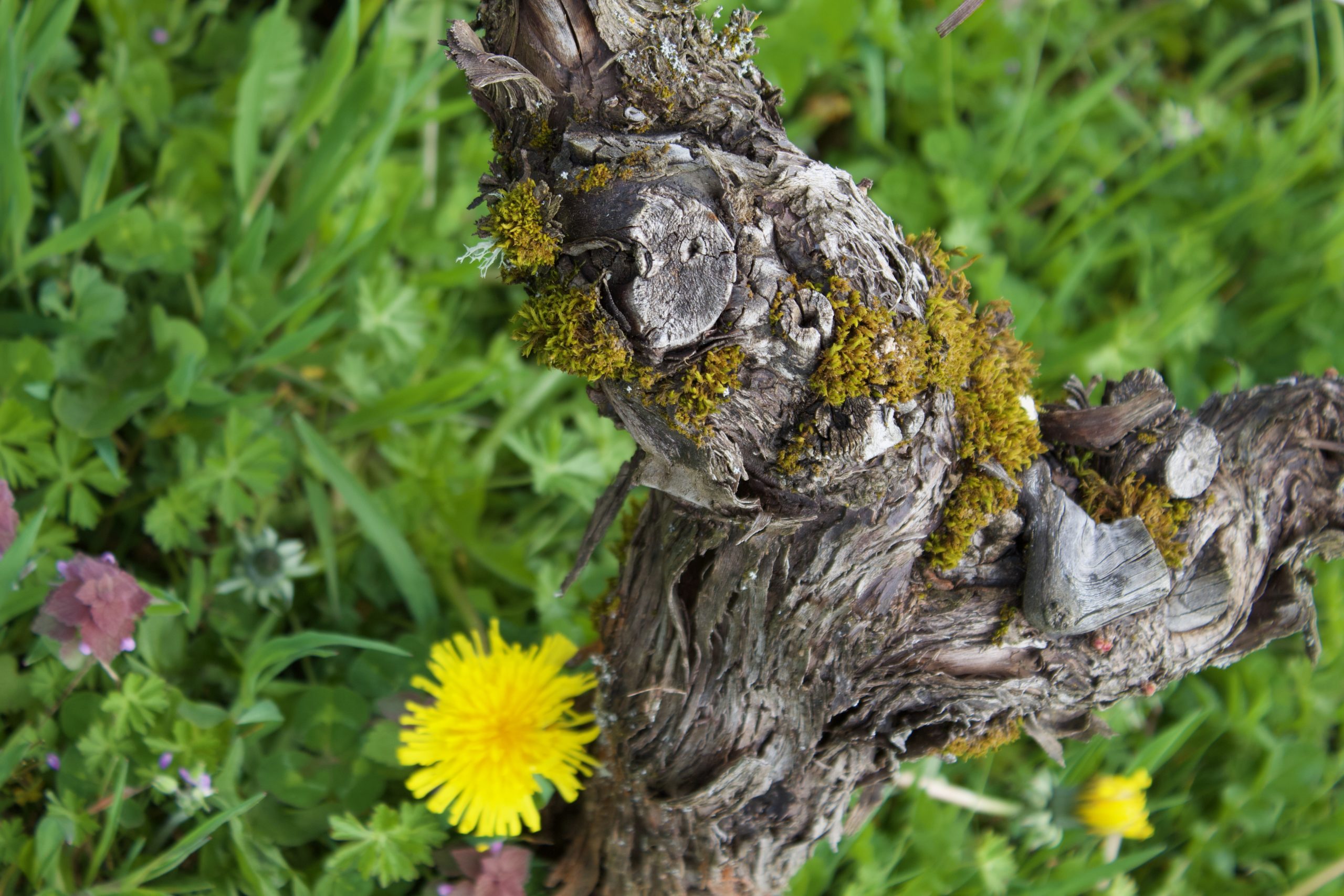
Growing Living Wood
In a traditional organic vineyard, you’ll find growers pruning, shoot thinning, shoot tucking, leafing, and hedging— a form of leaf removal usually involving a tractor with cutters that can take place multiple times during a season. At Angela, Heath’s team is pruning, shoot thinning, and then walking away. Why? Because when you manage using a holistic approach, it means reassessing practices for long term viability. This is where the school of ‘minimal intervention’ comes into play.
“In terms of how we [farm], it’s to enhance the vascular system of the vine, as opposed to the… efficiency of farming for a season. I’m farming for the long term. I’m trying to grow living wood.” -HP
Heath has been experimenting with tressage, a less invasive form of canopy management that involves braiding the vine. When you hedge with a machine or even simply pluck a leaf from a vine, it causes a disruptive hormonal reaction that encourages the plant to focus on growth. At the same time it distracts the plant from ripening its fruit. By utilizing this braiding technique, they’ve lessened the need for turbulent tractor passes while maintaining their vines’ concentration on maturing prized grapes.
Heath first tested tressage on a single acre and then spread to others after positive results. Having witnessed the spike in fruit quality firsthand, a result of the “living wood”, it’s his hope to eventually use this method across all of their vines. But leafing and hedging mechanically aren’t the only disruptive practices that require conscious, calculated and enduring problem solving. Tilling, and the tractors they require, are two other systems they are working to remove.
Reducing Tilling with Cover Crops and Walking Compost
Tilling is the practice of turning soil between vines to manage weeds and pests. To the detriment of soil health, tractors create harmful carbon emissions, force compaction and add fossil fuels. Moving a vineyard away from this practice, however, requires a slow transition. If you’re not careful you’ll shock the microbial life in the topsoil. Heath’s solution combines biodynamics and the careful planting of short and long term cover crops.
”During the growing season we farm grapes, and then during the fall and spring we farm cover crops.” -HP
In one transitioning area of Abbott Claim, he has planted two types of clover, Austrian pea, and annual rye grass— each of which provides a strong nitrogen-rich cover. He allows it all to grow as tall as possible and later mows to create a layer of mulch. Then, using a biodynamic compost tea, he seasons the mulch to jumpstart its microbiome. By Autumn, he’ll be able to introduce additional compost and then start over with a more suitable, longer term, no-till cover crop. It may take time, but the price for not upsetting their soil life will potentially mean they can get rid of tractors altogether. And in this interim, they can develop walking compost.
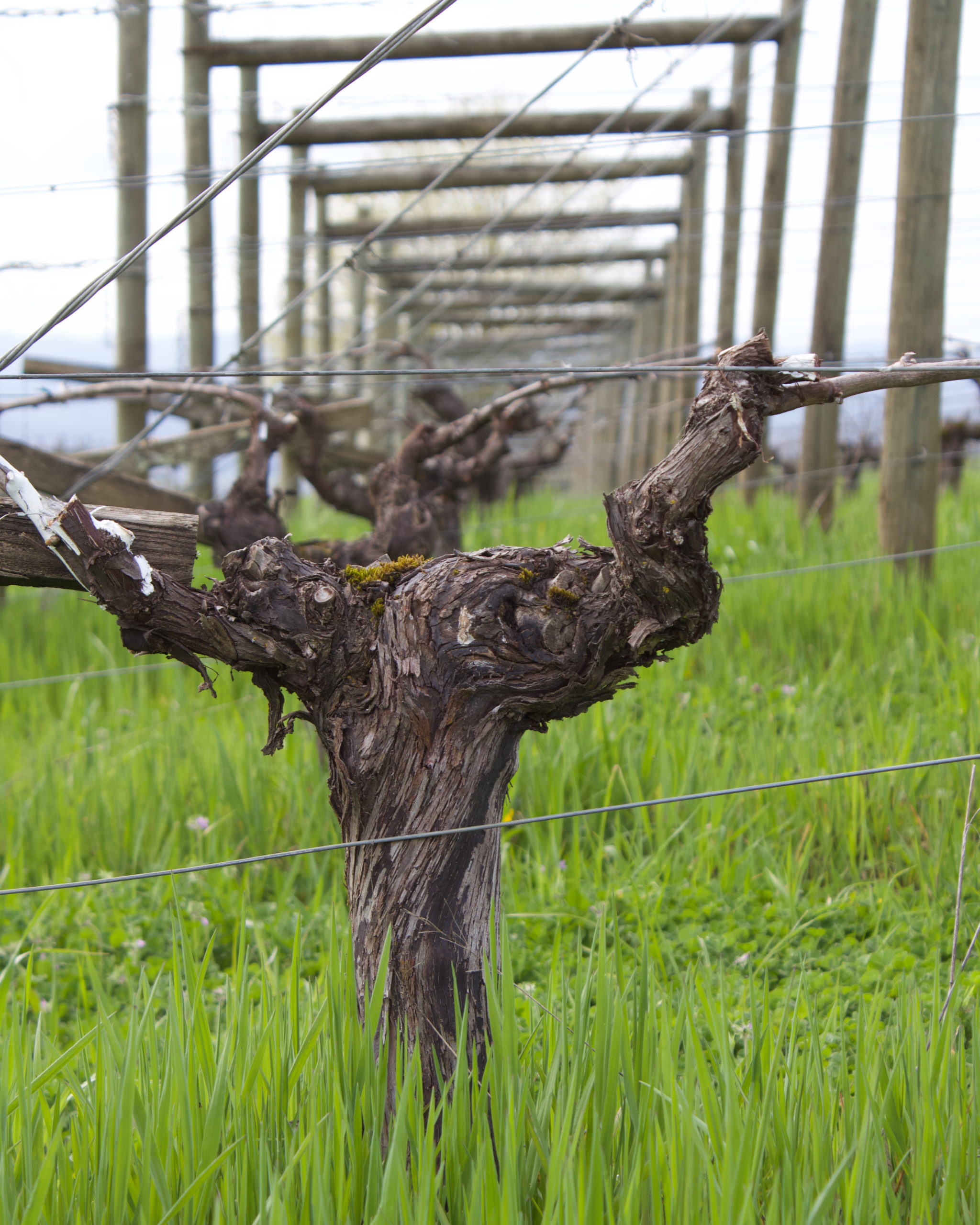
As terrifying as it might sound, ‘walking compost’ is actually a land-friendly way of introducing fertilizers (which can contain harsh components like high acidity) to future vineyard sites. To build, Heath reuses grape pomace from the winery and leaves it for a year to cure. By that time, all of the alcohol has evaporated. He prepares a biodynamic compost and the resulting humus is piled onto specific areas throughout the property. Through moderate use and recognizing the needs of select soils he is able to gently prime their land without, again, upsetting its ecosystem. Once the compost has integrated after a year later, the land can be used for future grapes, or even habitat conservation. In areas where they can’t achieve this goal, Heath looks to the local community.
Sharecropping
If you’ve studied the soils of Oregon then you’ve likely read that they are mostly composed of sedimentary terra that go back millions of years, and that they were shaped from prehistoric floods. This cataclysmic erosion resulted in mountains high and valley low, but the lowest elevations retained high concentrations of nutrient-rich silt that today make them less suited for luxury grapes. At Angela, there are a good 20 acres in this category that prosper from a sharecropping agreement: Heath partnered with a local dairy farmer who uses the land to grow certified organic dairy feed. In exchange, they receive high quality manure for their compost program while maintaining the organic standards they’ve worked so hard to put in place. It’s these sort of relationships that are mutually beneficial and grow sustainable landscapes.
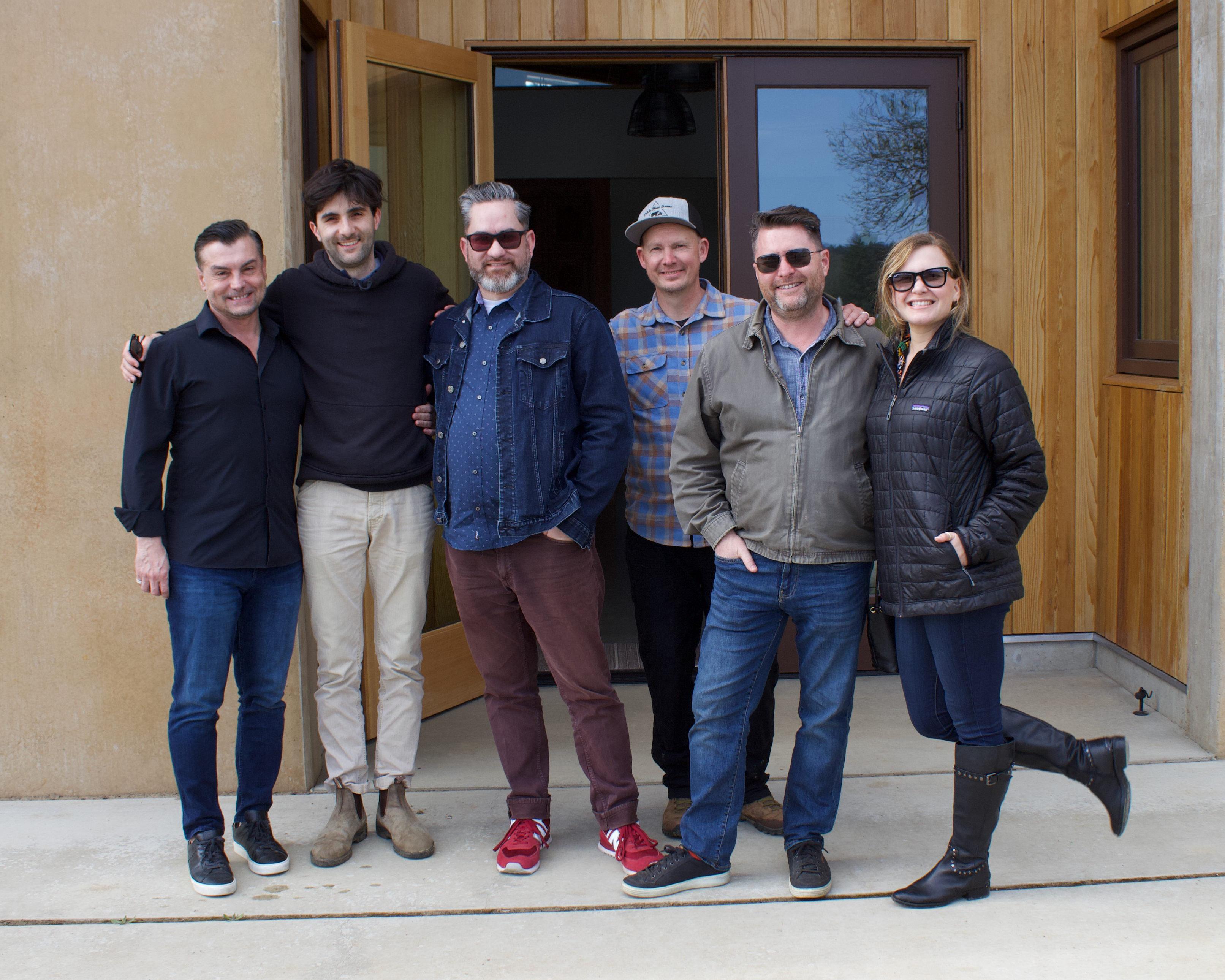
From left to right: John Kochis (President of US Operations for Graham Beck), Winemaker Alban Debeaulieu, Derek (Serendipity Dallas Sales), Heath Payne, Craig (Houston Sales), Lola (Regional Sales Manager for Beck Family)
“One of the things the past couple of years has taught me is really the importance of community and how important it is to work with my neighbors. In managing sustainable landscapes, the power of community has never been stronger for me.” -HP
As partners with Angela ourselves, that community hasn’t been lost on us. Our Serendipity crew could probably have spent hours exploring Heath’s viticulture program, each practice bringing into focus what it means to implement regenerative agriculture. But like many good days in this industry, we paused for the gift of good food and were able to enjoy the literal fruits of their labor. The hospitality was unparalleled and the wines were even better— a dirt-friendly, delicious reminder of what’s going on beyond organics. For anyone who’s ever valued sustainability, Angela Vineyards is the essential sipping just waiting for you to discover it for yourself.
